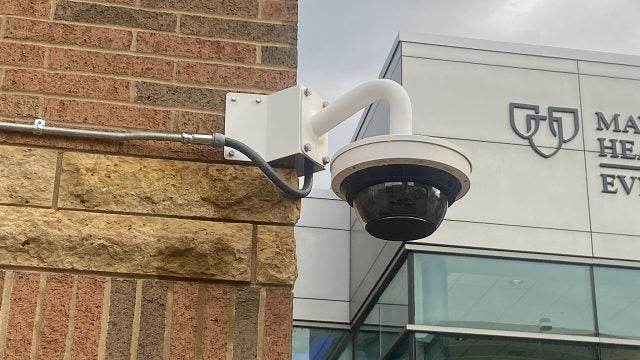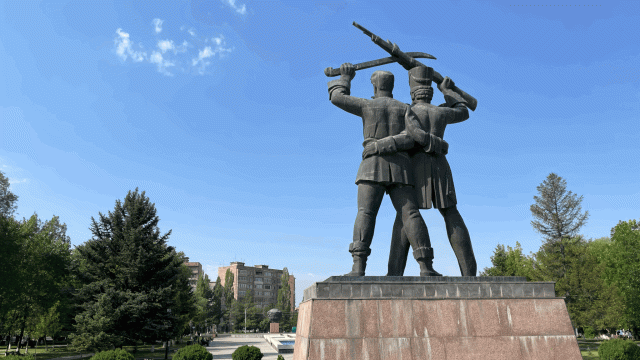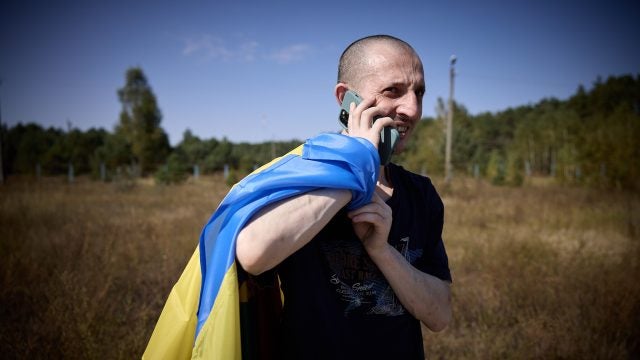Title: Doing “The Work” Wherever You Are
The below article is a submission from our call for papers: “Amplifying Black Authors & Racial Justice in International Affairs.” The series includes written submissions on the international implications of the Black Lives Matter movement, of the ongoing fight for racial justice in the United States, and of related issues.
In the midst of COVID-19, US policing, and the ongoing Movement for Black Lives, people are more exposed to radicalism and revolutionary politics than ever before. These are political belief systems rooted in a demand for change while moving away from deeply held beliefs in cooperation and coalition building. Drastically changing our approach to politics in these ways is both intriguing and terrifying to many, especially when the alternative is more ICE, more unidentified officers, and other more explicit commitments to white supremacy, patriarchy, and capitalism.
While all choices are tradeoffs, the consequences of revolutionary politics are not annihilation. You can (and should) commit to revolutionary politics without risking fascism. Thus, to better clarify these revolutionary visions, this piece highlights a series of practical changes to our definitions of revolution that better align us with today’s movement politics. Amidst a million problems, there are three particular ways that people often misconstrue revolutionary politics and prevent themselves from doing the proverbial work.
The first is believing that a revolution is the same as a coup. Thinking of revolution as a coup makes at least some sense in the U.S. context given that the founding American Revolution can be understood with the term. But like war itself, revolution means many things. Today’s movement organizers are not relying on guerrillas, militias, or other military forces – that has been the US government. So then, how is today’s revolution being defined?
The core of this movement has a simple philosophy: when the most marginalized people are freed, then we will all be freed. This is the central belief behind the #BlackLivesMatter organization and, more specifically, the ongoing campaign advocating that we #SayHerName. This campaign deliberately centers the unnamed Black women – cis and trans – whose entire lives and often premature deaths are systemically unacknowledged. And before you skip ahead saying “not me,” know that all of these points are problems both outside and within every movement. That is why we call it a movement, because of it s ongoing efforts to change inside and out.
Doing the (movement) work means centering oppressions rooted in race, gender, and sexuality shortcomings in our actions. Take time to learn from the many organizers and thinkers that have carefully cultivated these foundational ideals. Read their books, listen to their podcasts, pull up their interviews. There is a reason radical Black feminists are the ones who founded the movement to begin with. Learn from them.
Beyond turning to a military-war mindset, a second way people misconstrue revolution is thinking of anarchy. Again, this makes some sense in US contexts, where bouncing between overwrought state surveillance and a decimated social welfare apparatus has personal, community, and national health consequences. The pandemic that has become a US-specific epidemic speaks for itself. As of the time of this writing, Flint, Michigan hasn’t had clean water for 2,276 days. We have literally watched “Little Miss Flint” Mari Copeny grow up without clean water. And now it has been 127 days since Breonna Taylor was killed. Anarchy is what we’re facing. So then, what are the politics of today’s revolution?
In a word, the politics of today’s revolution are all about community cooperation in an effort to survive the anarchy of capitalism. One major problem, however, is that community has become an offensive idea for a lot of people. They justifiably ask, where is community when I need help? Where is community when jobs are being lost, rent is going unpaid, essential workers are denied hazard pay and PPE, and health insurance is evaporating during the US COVID-19 epidemic? By pointing to capitalism and anarchy, I am (again) describing the attack. And while charity is appreciated, these are political problems and thus require at least some political solutions. In this case, the solution is in political solidarity and “mutual-aid” networks.
Reasonable aversion to notions of “community development” has shifted towards mutual aid: a conscious decision to identify five to twenty people who choose to share resources with one another. These resources exist in many forms, including time – for the many of us deprived of substantive human contact, money – for food, childcare, or healthcare; and services – helping clean houses, mowing lawns, or any of the number of other needs we all have.
People hesitate when they think the movement is aimed at disorder, but these issues – like our increasing isolation, alienation, and distance from one another – are symptoms caused by the labor exploitation and wage theft intrinsic to capitalism. It is therefore courageous when we face these problems and ask for help in building mutual aid networks, remembering that living without courage – among many other things – also means living without support and community. This is why the movement demands bravery, because we need it to survive.
Finally, while notions of coups and anarchy generally derive from those who disagree, the third way people often misconstrue revolution is more from those who are actually sympathetic to liberator movements. Nevertheless, they’re thrown off by their belief that revolution is all-or-nothing. If they don’t think a movement is at a tipping point of changing the world, then they’ll support from afar but hesitate to participate. If they don’t think they can completely solve an issue (and risk as little as possible in the process), they hesitate further. And when they believe that change is impossible, many simply stop in their tracks. So then, how do we remain politically engaged with our movement philosophies and politics without becoming overwrought with the massive stakes? We can start by remembering the story of a recently lost leader, Representative John Lewis.
John Lewis reminds us that good and necessary trouble exists. These are demands for justice, those spiritual wars that are fought with courage, conviction, and community. For Lewis, this meant going on freedom rides in the Jim and Jane Crow South and submitting to a non-violent philosophy that by any reasonable measure had no chance at succeeding. We might ask why anyone would choose liberty over death, but the better question is how we can muster the wherewithal to be so deeply committed? For Lewis and many others, the answer comes in attaching your personal commitment to good and necessary trouble to a community of troublemakers.
Although Lewis is well known today for his work in Congress, his radical beginnings were fostered partly in his seminary school education and primarily in his participation with the Student Nonviolent Coordinating Committee (SNCC). Mentored by the legendary Ella Baker, SNCC was a vehicle for community change during the Civil Rights Movement and beyond into the Black Power Movement. Today’s Movement for Black Lives combines these efforts and incorporates the Black Feminist Movement and LGBTQIA+ Movements as well.
Lewis wasn’t on freedom rides and sit-ins by himself – he was upheld by his community of people committed to organizing. You too must create and join mutual aid networks so that you might also be empowered through studying these politics and histories. Studying revolution is the beginning of good trouble, as anyone who has studied will tell you that this world won’t leave this good deed unpunished. And it is this realization – that even venturing to learn the depths of oppressions – that must drive us to revolutionary organizing and action.
This is the necessary trouble we need, and it is accessible to everyone no matter where you find yourself in life. So, wherever you find yourself reading this, do the work.
. . .
Marcus Board Jr. is a political theorist and Assistant Professor in the Department of African American Studies at Georgetown University. Dr. Board’s current book project is critically assessing grassroots resistance with a particular focus on the 2015 Baltimore Uprising and the political processes by which white supremacy and patriarchy are invisibly infiltrating revolutionary agendas. Professor Board earned his PhD in Political Science from the University of Chicago and his BA in Africana Studies and Political Science from the University of Maryland Baltimore County.
Recommended Articles

Activists are campaigning worldwide to ban the use of facial recognition technology to identify, track, and profile people in public spaces. The power of this global movement is rising steadily…

